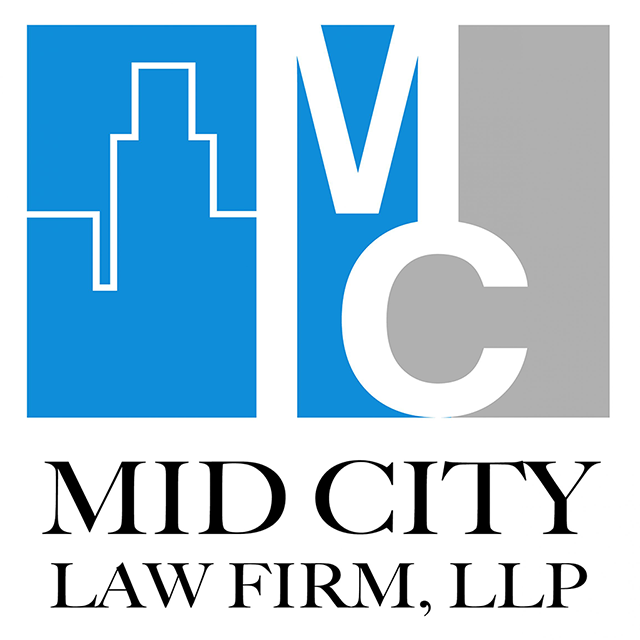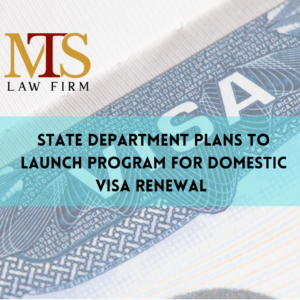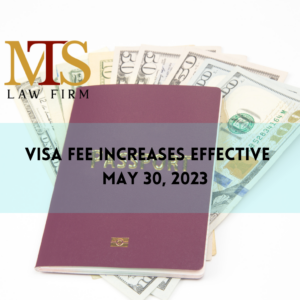Table of Contents
Immigrant Visa
There are five employment-based visa categories available to aliens who are seeking to immigrate based on their job skills. These categories are as follows:
Employment-Based First Preference (EB-1): Priority Workers
An individual may be eligible for an employment-based, first-preference (EB-1) visa if he is a noncitizen of extraordinary ability, are an outstanding professor or researcher, or are a certain multinational executive or manager.
The following priority workers are eligible for EB-1 Visa
Persons with extraordinary ability in the sciences, arts, education, business, or athletics. Extraordinary ability is defined as a level of expertise indicating that the individual is one of that small percentage who has risen to the very top of the field of endeavor as demonstrated by evidence that the alien has sustained national or international acclaim and that his or her achievements have been recognized in the field of expertise. Such evidence shall consist of either a one-time major, internationally recognized award or by evidence satisfying at least three of the following criteria: Receipt of lesser nationally or internationally recognized prizes or awards for excellence;
• Membership in associations in the field for which classification is sought, which require outstanding achievements of their members, as judged by recognized national or international experts in their disciplines or fields;
• Published material about the alien in professional or major trade publications or other major media, relating to the alien’s work in the field for which classification is sought (include the title, date, and author of the material, and any necessary translation);
• Alien’s participation, either individually or on a panel, as a judge of the work of others in the same or an allied field of specification for which classification is sought;
• Alien’s original scientific, scholarly, artistic, athletic, or business-related contributions of major significance in the field;
• Alien’s authorship of scholarly articles in the field, in professional or major trade publications or other major media;
• Display of alien’s work in the field at artistic exhibitions or showcases;
• Performance in a leading or critical role for organizations or establishments that have a distinguished reputation;
• Evidence that the alien has commanded a high salary or other significantly high remuneration for services, in relation to others in the field; or
• Commercial successes in the performing arts, as shown by box office receipts or record, cassette, compact disk, or video sales.
2. Outstanding professors and researchers with demonstrated international recognition for his or her outstanding achievements in a particular academic field, evidenced by at least two of the following:
• Evidence of receipt of major prizes or awards for outstanding achievement;
• Evidence of membership in associations that require their members to demonstrate outstanding achievement;
• Evidence of published material in professional publications written by others about the alien’s work in the academic field;
• Evidence of participation, either on a panel or individually, as a judge of the work of others in the same or allied academic field;
• Evidence of original scientific or scholarly research contributions in the field; or
• Evidence of authorship of scholarly books or articles (in scholarly journals with international circulation) in the field.
The regulations further require the applicant to have at least three years of experience in teaching or research in the academic field. The term “academic field” means a body of specialized knowledge offered for study at an accredited U.S. university or institution of higher education.
Applicants in this category must be coming to the U.S. to pursue tenure, tenure track teaching, or a comparable research position at a university or other institution of higher education. An offer of employment from a prospective United States employer is required.
3. Multinational managers or executives who have been employed for at least one of the three preceding years by the overseas affiliate, parent, subsidiary, or branch of the U.S. employer. If the applicant is outside the United States, the three-year period refers to the three years immediately preceding the filing of the petition. If the applicant is already in the United States working for the U.S. employer, the three-year period refers to the three years preceding entry as a nonimmigrant. The applicant’s employment outside of the U.S. must have been in a managerial or executive capacity, and the applicant must be coming to work in a managerial or executive capacity.
EB-1 Visa Application Process
- Extraordinary Ability: The applicant may initiate the application by filing a Form I-140, Petition for Alien Worker
- Outstanding Professors and Researchers: Your U.S. employer must file a Form I-140, Petition for Alien Worker.
- Multinational Manager or Executive: Your U.S. employer must file USCIS Form I-140, Petition for Alien Worker
If your I-140 petition is approved, your spouse and unmarried children under the age of 21 may be eligible to apply for admission to the United States in E-14 or E-15 immigrant status, respectively
Employment-Based Second Preference (EB-2): Professionals Holding Advanced Degrees and Persons of Exceptional Ability
An individual may be eligible for an employment-based, second preference visa if he is a member of the professions holding an advanced degree or its equivalent, or a person who has exceptional ability. The following professionals are eligible for EB-2 Visa
Professionals holding an advanced degree who have attained a U.S. academic or professional degree or a foreign equivalent degree above that of a baccalaureate, or a U.S. baccalaureate degree or a foreign equivalent degree followed by at least five years progressive experience in the specialty.
Persons with exceptional ability in the sciences, arts, or business. Exceptional ability means having a degree of expertise significantly above that ordinarily encountered in the sciences, arts, or business
If your I-140 petition is approved, your spouse and unmarried children under the age of 21 may be eligible to apply for admission to the United States in E-14 or E-15 immigrant status, respectively
Employment-Based Third Preference (EB-3): Skilled Workers, Professionals, and Unskilled Workers (Other Workers).
An individual may be eligible for this immigrant visa preference category if he is a skilled worker, professional, or other worker. The following workers are eligible for EB-3 Visa
Skilled workers are persons capable of filling positions that require a minimum of two years training or work experience and which are not temporary or seasonal in nature.
Professionals are members of the professions who hold at least a baccalaureate degree from a U.S. university or college or a foreign equivalent degree. To qualify for this classification, the U.S. employer must show that the minimum of a baccalaureate degree is required for entry into the proffered job.
Unskilled workers (Other workers) are persons capable of filling positions that require less than two years training or experience and which are not temporary or seasonal in nature. Possession of the required training or experience must be evidenced by training or employment certificates describing the training received or experience of the alien.
EB-3 Visa Application Process
To begin the process of obtaining an employment-based immigrant visa, your employer (petitioner) is required to submit a Form I-140, known as the Immigrant Petition for Alien Workers. As part of this application, your employer must provide evidence that they have a consistent ability to pay the wage offered to you, starting from the priority date. They can demonstrate this ability by submitting an annual report, federal income tax return, or audited financial statement. This documentation is crucial in establishing their ongoing financial capacity to support your employment.
If your I-140 petition is approved, your spouse and unmarried children under the age of 21 may be eligible to apply for admission to the United States in E34 (spouse of a “skilled worker” or “professional”) or EW4 (spouse of an “other worker”). and E35 (child of a “skilled worker” or “professional”) or EW5 (child of an “other worker”)
Employment-Based Fourth Preference (EB-4): Certain Special Immigrants.
An individual may be eligible for an employment-based, fourth preference (EB-4) visa if he is a special immigrant. The following special immigrants are eligible for EB-4 visa
Broadcasters in the U.S. employed by the International Broadcasting Bureau of the Broadcasting Board of Governors or a grantee of such organization
Ministers of Religion
Certain Employees or Former Employees of the U.S. Government Abroad
Certain Former Employees of the Panama Canal Company or Canal Zone Government
Certain Former Employees of the U.S. Government in the Panama Canal Zone
Certain Former Employees of the Panama Canal Company or Canal Zone Government on April 1, 1979
Iraqi and Afghan interpreters/translators who have worked directly with the United States armed forces or under Chief of Mission authority as a translator/interpreter for a period of at least 12 months and meet requirements. This classification has an annual numeric limitation of 50 visas.
Iraqi and Afghan nationals who have provided faithful and valuable service while employed by or on behalf of the U.S. government in Iraq for not less than one year after March 20th, 2003 or in Afghanistan for not less than one year after October 7th, 2001, and have experienced an ongoing serious threat as a consequence of that employment.
Certain Foreign Medical Graduates (Adjustments Only)
Certain Retired International Organization Employees
Certain Unmarried Sons and Daughters of International Organization Employees
Special Immigrant Juveniles (no family member derivatives; Adjustments Only)
Persons Recruited Outside of the United States Who Have Served or are Enlisted to Serve in the U.S. Armed Forces
Certain retired NATO-6 civilians
Certain Unmarried Sons and Daughters of NATO-6 civilians
Certain Surviving Spouses of deceased NATO-6 civilian employees
Persons who are beneficiaries of petitions or labor certification applications filed prior to September 11, 2001, if the petition or application was rendered void due to a terrorist act on September 11, 2001
Certain Religious Workers
Some EB-4 classifications allow your spouse and unmarried children under the age of 21 to be admitted to the United States.
Employment-Based Fifth Preference (EB-5) : Investors
This preference is set aside for immigrant investors who invest a specific minimum amount of capital in a new commercial enterprise which will create employment for a specific minimum number of US workers. No “job offer” is needed because the qualification is based on the amount of investment and not on whether a job is offered to the alien. Labor certification is not needed.
The following are the general requirements to qualify for EB-5 classification:
Alien needs to “invest” in a new commercial enterprise. A “new” enterprise means a company that is formed after November 29, 1990.
Invests or is in the process of investing capital of $1 million dollars. Investment could be $500,000 dollars if it’s in a targeted employment area (i.e., rural area of less than 20,000 populations, or an area which has experienced high unemployment of at least 150% of the national average.). (a) Investment can be cash, equipment, inventory, other tangible prop, cash equivalents, and indebtedness secured by assets owned by the entrepreneur, provided the entrepreneur is personally liable and assets of new enterprise are not used to secure any indebtedness; (b) All capitals are in US dollars and at fair market value.
Aliens must show source of funds and that they are legitimate.
Create at least 10 full-time jobs to qualifying US citizens or immigrant workers (excluding alien and his family) within the 2- year conditional residence period. Independent contractors hired by the entrepreneur do not count. Full-time employment is at least 35 working hours per week.
When the Form I-526 petition for EB-5 classification is granted, alien becomes a conditional resident for two years following the adjustment application or admission under an immigrant visa. To remove the conditions, alien must file Form I-829 petition within the 90-day period immediately preceding the second anniversary of his or her admission as a conditional resident. If I-829 is not filed on time, status is automatically terminated.
Diversity Immigrant Visa
Section 203(c) of the INA provides for the Diversity Immigrant Visa Program, which provides up to 55,000 immigrant visas each fiscal year to permit additional immigration opportunities for persons from countries with low admissions during the previous five years. Under the Nicaraguan Adjustment and Central American Relief Act (NACARA) passed in 1997, beginning DV-1999 and for as long as necessary, up to 5,000 of the 55,000 visa allocation will be made available for use under the NACARA program.The annual Diversity Visa Program makes visas available to persons meeting simple, but strict, eligibility requirements. Entrants are selected through computer-generated random selection system. The visas are distributed among six geographic regions, and within each region, no single country may receive more than seven percent of the available visas in any one year. Visas are allocated to nationals of countries with historically lower rates of U.S. immigration. Nationals of countries who have sent more than 50,000 immigrants to the United States over the past five years are not eligible to apply for the Diversity Visa program.
To enter the Diversity Visa Program, the entrant must be a native of an eligible country and meet either the education or experience requirement of the program. Every entrant must have at least a high school or its equivalent or two years of work experience within the past five years in an occupation requiring at least two years’ training or experience.
The entry must be submitted electronically at www.dvlottery.state.gov. Based on the allocations of available visas per region and country, the computer system will randomly select individuals from among qualified entries. If selected, an entrant may proceed with the immigrant visa application provided he or she meets all the eligibility requirements. Application for the visa may be done through consular processing at a U.S. consulate office or adjustment of status at the USCIS.
Looking to immigrate to the United States based on your job skills? MTS Law specializes in providing legal representation for individuals seeking to apply for immigrant visas in the five employment-based visa categories.
We have a deep understanding of the employment-based visa categories and can assist you in determining the most suitable option for your unique qualifications and circumstances. Whether you qualify under the EB-1, EB-2, EB-3, EB-4, or EB-5 category, our team will guide you through the application process step by step.
Immigrating based on your job skills is a significant decision, and our law firm is dedicated to providing the professional and personalized legal representation you deserve.
Contact us today to take the first step towards realizing your dreams of obtaining an immigrant visa and starting a new chapter in the United States.
Disclaimer
The information presented in this section provides a general overview of the naturalization process in the United States. For accurate and up-to-date information tailored to your individual case, we recommend seeking professional assistance from MTS Law. With over 10 years of experience, our team has successfully guided clients through various aspects of immigration law, ensuring the best possible outcomes for their clients. Contact MTS Law today for comprehensive and reliable immigration legal services.
Recognized as the 'Attorney of Celebrities' since 2010
Having been known in the Filipino community for representing well known promoters, and artists, MTS Law has earned the recognition of being the “attorney of celebrities.” For over 13 years, it has been serving its clients with persistence and determination, always ready to take on tough and challenging cases to help Filipino families realize their American dream.
YELP REVIEWS
[wpyelp_usetemplate tid="1"]
Are you pleased with the service we provided? Kindly consider leaving a Yelp Review to help inform others about your experience
Latest News And Updates

Mid City Law Firm for Personal Injury Cases
May 23, 2023
Respectfully announcing the establishment of our new law firm – the Mid City Law Firm. The Mid City Firm is established as a result of

State Department Plans To Launch Program for Domestic Visa Renewal
May 15, 2023
The State Department seeks to launch a pilot program later this year offering visa renewal options in the US for H-1B specialty occupation workers and

Visa Fee Increases Effective May 30, 2023
May 15, 2023
Effective May 30, 2023, the U.S. Department of State will increase certain nonimmigrant visa (NIV) application processing fees globally. The application fee for visitor visas
SCHEDULE A FREE CONSULTATION
Tell us how we can help you
Phone: + 1 (213) 232-3154 (818) 731-2205 Fax: (213) 380-9300
Email: info@mtsangalaw.com
oFFICE ADDRESS: 3600 Wilshire Blvd. Suite 920 Los Angeles, California 90010

